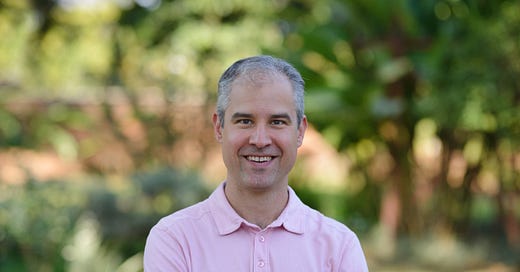Today’s Future of Education newsletter highlights four items:
- Whether we’re still likely to see a mass consolidation of colleges over the coming years;
- Why a controversy around the outcomes at a coding bootcamp call for external, audited standards around student outcomes;
- Our final episode of Future U for the season;
- And an exploration on Class Disrupted into the exhaustion many educators feel—and why the media debate between accelerating and remediating students may be missing some nuance.
Pete Seeger never sang about where have all the collapsed colleges gone, but if he had, his second line might have been the most important: Long time passing.
Because the closing and merging of colleges won’t be an immediate phenomenon.
In my latest piece for Forbes, I dig into this question of whether the demise of colleges has been greatly exaggerated.
It certainly seems like it.
As COVID-19 descended, predictions about college closures rose. NYU Professor Scott Galloway’s comments—and projections—were perhaps most notable.
But, as Washington Post reporter Nick Anderson shared recently on an episode of our Future U podcast, predictions of college closures have yet to result in a sudden, mass extinction—and, at least to this point, that remains true in the wake of COVID-19 as well.
So for someone like me who has made strong predictions about looming college failures (at least 25% over two decades), what are we to make of the data so far?
In the piece, I offer four reflections, which boil down to:
1) I’ve never stated the question was squarely around college closures; consolidation is indeed happening fairly rapidly—and not just among private colleges.
2) Consolidation will take some time. COVID predictions notwithstanding, we should be looking at numbers over two decades, not two years.
3) Federal dollars have propped up some institutions in the wake of COVID that might have otherwise closed or merged. The full impact of the pandemic might not have been felt yet in other words.
4) For those who say 25% or more of colleges won’t fail, they could be right! Colleges have cut far more tenured faculty and the like than I ever would have predicted. And, as Clay Christensen and I have written, we’re rooting for them to innovate and better serve students—like the 88 million Americans who need more education and upskilling to be prepared for the jobs of tomorrow.
Check out the whole piece here.
It’s past time to track student outcomes
As Lambda School, an online coding bootcamp, finds itself in the news again on the heels of a lawsuit alleging false advertising, its full-throated defense raises a larger and more urgent set of questions that transcend the performance of one school, my colleague Allison Salisbury, a senior vice president leading the employer solutions team at Guild Education, and I argue in Education Next.
That need? To move to a common set of standards to measure post-secondary student outcomes.
There is a long history of suspicion and questions around the emergence of new, nontraditional models of education and training for adult learners.
The California Bureau for Private Postsecondary Education, for example, has continually challenged upstart models of schooling. It levied a small fine of $75,000 against Lambda and previously accused the Holberton School, a two-year, project-based software engineering school, of being an “immediate danger to the public’s health, safety, and welfare.” Why? Because it offered a program that didn’t fit into the bureau’s regulatory framework.
But that framework, albeit well-intentioned, is—at best—anachronistic, as it focuses largely on inputs like the type and tenure of faculty members employed and processes like the methods for awarding credit.
Consumer protection matters, we argue in the piece, but it should encourage continuous improvement and innovation to deliver value in real outcomes for students. Faculty turnover, for example, could be a signal of a problematic program, with the risk of inconsistent delivery—or an indicator that a program is drawing upon the talents of instructor practitioners with real-time experience aligned to the demands of the labor market.
It’s past time for regulators to shift the focus beyond program inputs to instead focus on capturing outcomes aligned to standards that matter. Funders should likewise insist that the schools they support use well-defined standards and pay for audits—or they won’t invest. The risk is too high, and the signal is too important to send. As Lambda’s experience shows, in the absence of verified outcomes, it takes only a few disgruntled students or a few poorly done courses to mount a challenge to the reputation of a school.
You can read the whole piece, “Lambda School Controversy Calls for Robust Quality Assurance in Higher Ed,” here.
Farewell To a Remote Year
In our final podcast of the fourth season of Future U, Jeff Selingo and I bid farewell to a year where we recorded every episode remotely by reflecting on what we learned from our guests, answered two questions from our listeners, and looked ahead to next year with a couple parting thoughts. Check it out here.
Are you exhausted yet?
Hopefully you haven’t found this newsletter exhausting! But on Class Disrupted, Diane Tavenner and I discussed a different kind of fatigue—the feelings that students, parents, and educators have from the past year. We asked what should we make of those feelings and what do they mean—or should they mean—for summer How should the time be used and how will it be used? We also dug into some new research around accelerating students versus offering them remediation—and suggested that the media headlines may be missing some key conclusions from the study. Check it out here, at “Are you exhausted yet?”
As always, thanks for reading, writing, and listening.




